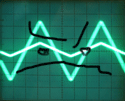|
If the only issue is roasting USB boot devices, would using a PCIe USB controller still let you boot off of USB?
|
|
|
|

|
| # ? May 16, 2024 17:49 |
|
IOwnCalculus posted:If the only issue is roasting USB boot devices, would using a PCIe USB controller still let you boot off of USB? I should probably just give that a shot first. e: reading around it looks like I'd need to find a pcie usb card that has a bootable rom on it.. anyone know where I could find such a thing? Enos Cabell fucked around with this message at 23:56 on Mar 21, 2022 |
|
|
|
withoutclass posted:I've been using the same USB stick for over 8 years now without a problem. I wouldn't do that in a production environment probably but for home use it works just fine. As a counterpoint I had three USB sticks die over the course of a year between 2019-2020. They were acting as boot devices for my previous server, but running Debian rather than TrueNAS.
|
|
|
withoutclass posted:I've been using the same USB stick for over 8 years now without a problem. I wouldn't do that in a production environment probably but for home use it works just fine. You have good luck! I have had plenty of USB sticks die on me as well. Sure a 256GB NVMe is overkill but honestly given how cheap they are these days I'd opt for overkill over wasted time fixing it if something went wrong
|
|
|
|
|
Well TiL about USBs being more fail-y than I expected!
|
|
|
|
There's only so much room on a PCB that's the size of a USB-A connector or maybe a little larger, and as there's not a lot of money to be made filling USB flash devices with the highest-quality flash ICs, you end up with a device that is very likely to fail because there's not a lot of room left over for wear leveling (which the device needs to be powered for, so you can't leave it on a shelf for extended periods and then expect it to work), and you risk having almost no write endurance due to using triple or quad level cells to achieve any kind of size that consumers are interested in buying, and all over an interface that's designed to abstract away every single part of the storage process to the point that you can't even assume that an undelete will work on filesystems like NTFS or FAT because the only thing TRIM promises is that the blocks return zeroes when something is re-read after having been marked for deletion.
|
|
|
|
|
I made it about 5-6 years on a pair of mushkin USB drives booting my TrueNAS install before I realized......oh both of them failed. I wonder why I never got a notification about the first one that failed. So now I only have 1 USB stick as a boot drive. It's not exactly catastrophic if you have a backup to flash and plug in if you're doing regular config backups so.....ehhhh.
|
|
|
|
Need a RPi or something with an OTG USB to act as a boot device
|
|
|
priznat posted:Need a RPi or something with an OTG USB to act as a boot device
|
|
|
|
|
I did not say it was a GOOD idea, mind. I am just into the weeds on pi based kvms and being able to pretend plug usb images in to a server to reimage them is pretty neat imo.
|
|
|
|
I have a good bit of data at home I'm trying to figure out the best way to keep it available and backed up. Right now it's on pairs of external drives that I synchronize manually and then important things get backed up with Backblaze. It's about 50TB total with 20TB of that on Backblaze. I'm also transitioning from an iMac/MacBook setup to Windows desktop/Macbook and would ideally have a more seamless way to hop between the two without resorting to exfat or paragon to for the external drives. I think my scenario would be: large array or drive pool on my network that has everything and is my working drive at home, cloud accessible backup of the big pool, and then individual external drives of each project or client for sharing with editors and per-project archives. Backblaze is only OSX/Windows so I'm curious about how well just making a file share in Windows 10/11 might work. I've zero experience with Windows file sharing and have only ever setup Linux-y shares or dedicated NAS hardware from Synology/etc. The tutorials I've come across so far are just, "right click the folder and share with specific people" but I'm not sure the pros and cons of doing this vs. an actual NAS, or if there's a better way to do it. Similarly, I've done remote admin of Linux systems with SSH but have never done so with a Windows machine. Do people just use RDP? I really don't want to learn any windows terminal commands if I can help it. And as an aside, has anyone used Dropbox advanced? It's $75 per month for unlimited data and the sales people are claiming that it actually is unlimited (or at least enough for the use I described to them.) Having the cloud version of my backup be useable for things other than just a restore would be really nice. I've got 6TB up on the trial, but they're capping it there unless I pay.
|
|
|
|
Anecdotal, but enough overlap to mention anyways. After my 7Pesh2 board fried my first unraid USB, I switched to a usb 2.0 thumbdrive which was recommended for stability and haven't had any issues in the 3+ years since. https://www.amazon.com/gp/product/B005FYNSUA/
|
|
|
|
THF13 posted:Anecdotal, but enough overlap to mention anyways. Good enough for me, grabbed one for my next replacement.
|
|
|
|
Enos Cabell posted:I've got an Unraid server that's worked pretty well for the past few years. My problem is I built it with this server board Gigabyte GA-7PESH2 that has been repeatedly frying my USB boot drives. I upgraded my main PC recently, and now I have a 9700k and mb sitting around so I've been entertaining thoughts of swapping that in. I'll miss all the extra threads from the dual Xeon E5-2630Ls, but the not killing the system on a reboot is a nice bonus. yeah unraid doesnít care what the hardware is so long as the USB drive doesnít change, Iíve got a second unraid install I tinker with that Iíve moved between 3 completely different hardware configs and it didnít give a poo poo e: I actually use a sandisk micro usb reader with a sandisk industrial micro SD for both of my unraid installs, it works great https://www.amazon.com/dp/B07G5JV2B5 https://www.amazon.com/dp/B07BZ5SY18 When you do this it supposedly ties the unraid install to the reader and not the SD card, so if you needed you could just image a new SD if one dies. I havenít had the need to test that though. e.pilot fucked around with this message at 06:46 on Mar 22, 2022 |
|
|
|
So what happens if you lose a SLOG? Obviously anything that hasnít been flushed to pool is toast but can you recover snapshots that were previously committed? I think I remember reading thereís some dev tools that can reset the ďinternal stateĒ of the pool. You can export and remove a SLOG safely right?
|
|
|
|
THF13 posted:Anecdotal, but enough overlap to mention anyways. This is the same one I've been using hah.
|
|
|
|
e.pilot posted:yeah unraid doesnít care what the hardware is so long as the USB drive doesnít change, Iíve got a second unraid install I tinker with that Iíve moved between 3 completely different hardware configs and it didnít give a poo poo I tried moving my unraid drives from a DL380 with the p420i controller running in HBA mode to my tower and found that there was something off between the two controllers that even though unraid saw all the drives and correct serial etc it said the drives didn't match and wouldn't mount them. It's likely more a rare case on my end, but at least one example of not being able to just put the drives in another machine and it work.
|
|
|
Paul MaudDib posted:So what happens if you lose a SLOG? Obviously anything that hasnít been flushed to pool is toast but can you recover snapshots that were previously committed? I think I remember reading thereís some dev tools that can reset the ďinternal stateĒ of the pool. The Separate (Intent) Log devices exist to let you move those synchronous writes onto some form of (usually faster, in terms of access time and number of operations per second) storage so that the synchronous operation can be acknowledged and the writer can move on, at which point the SLOG devices are responsible for keeping the data until it's been written (usually in bigger batches) to the array. That's why it's important to have at least a two-way mirror for SLOG devices, and why some setups do 3 or 4-way mirrors for their SLOG devices, and why the recommendation is to use real datacenter-capable capacitor-backed SLC flash SSDs - because if the SLOG device(s) disappear before the data can be batch-written, the synchronous data that was acknowledged as having been written to disk, will disappear forever. I think ZFS got SLOG removal at some point, yes - although I can't remember when. BlankSystemDaemon fucked around with this message at 12:51 on Mar 22, 2022 |
|
|
|
|
Paul MaudDib posted:So what happens if you lose a SLOG? Obviously anything that hasnít been flushed to pool is toast but can you recover snapshots that were previously committed? I think I remember reading thereís some dev tools that can reset the ďinternal stateĒ of the pool. Traditionally SLOGs are mirrored devices, so losing one shouldn't be a problem. But losing the entire thing could lose a maximum of five seconds worth of data transactions that haven't made it into the pool yet. SLOGs can be safely removed from the pool any time. BSD lays it out much more technically than I did.
|
|
|
|
e.pilot posted:yeah unraid doesnít care what the hardware is so long as the USB drive doesnít change, Iíve got a second unraid install I tinker with that Iíve moved between 3 completely different hardware configs and it didnít give a poo poo Would it be possible to mirror one of these using 2 readers / 2 USB slots? edit: nevermind, misread that you were referring to Unraid, not TrueNAS. Smashing Link fucked around with this message at 16:54 on Mar 22, 2022 |
|
|
|
BlankSystemDaemon posted:That's why it's important to have at least a two-way mirror for SLOG devices, and why some setups do 3 or 4-way mirrors for their SLOG devices, and why the recommendation is to use real datacenter-capable capacitor-backed SLC flash SSDs - because if the SLOG device(s) disappear before the data can be batch-written, the synchronous data that was acknowledged as having been written to disk, will disappear forever. The biggest danger is if you lose an SLOG during a power-loss event, then the write aggregation in DRAM goes poof and your on-SLOG ZIL has also gone poof so you've lost those five seconds or so worth of data.
|
|
|
phongn posted:You can lose your SLOGs and not lose data so long as writes complete; ZFS simultaneously writes to the ZIL and to the in-RAM TXG aggregation and always writes to disk from that in-RAM aggregation.
|
|
|
|
|
Enos Cabell posted:I've got an Unraid server that's worked pretty well for the past few years. My problem is I built it with this server board Gigabyte GA-7PESH2 that has been repeatedly frying my USB boot drives. I upgraded my main PC recently, and now I have a 9700k and mb sitting around so I've been entertaining thoughts of swapping that in. I'll miss all the extra threads from the dual Xeon E5-2630Ls, but the not killing the system on a reboot is a nice bonus. I've been using one of these for years without issue in Unraid.
|
|
|
|
e.pilot posted:yeah unraid doesnít care what the hardware is so long as the USB drive doesnít change, Iíve got a second unraid install I tinker with that Iíve moved between 3 completely different hardware configs and it didnít give a poo poo If you are moving to relatively recent hardware, you want to make sure you are running the latest released Unraid. I pulled a couple thousand during the early Chia days with my spare space, so did a full hardware refresh on the server and it wouldn't boot until I booted the USB drive in my laptop, upgraded Unraid, then plugged it back in to the server. Whoops. 
|
|
|
|
Enos Cabell posted:I've got an Unraid server that's worked pretty well for the past few years. My problem is I built it with this server board Gigabyte GA-7PESH2 that has been repeatedly frying my USB boot drives. I upgraded my main PC recently, and now I have a 9700k and mb sitting around so I've been entertaining thoughts of swapping that in. I'll miss all the extra threads from the dual Xeon E5-2630Ls, but the not killing the system on a reboot is a nice bonus. Yeah, either known by Gigabyte or not, the 7PESH2 has a fault across every single one I've seen where it over volts USB drives. I thought about building an internal USB adapter that stole 5v from the PSU to avoid the overcurrent, but decided against it. I also tried a PCIe USB adapter IIRC, but booting off that was impossible as far as I could tell. I ended up just switching builds entirely (and not really listening to JDM or engaging with that community anymore due to his "no you're holding it wrong" approach but that's not the point).
|
|
|
|
Smashing Link posted:Anyone have any clever solutions to an OS disk for TrueNAS? I'm using a 256 GB NVME but it's overkill for the OS and uses the whole disk. I have read USB disks are not good either because TrueNAS does a lot of writing to the OS disk. Following up on this, I ended up going with this solution to free up my 256 GB NVMe card and avoid using any SATA ports -- e.pilot posted:yeah unraid doesnít care what the hardware is so long as the USB drive doesnít change, Iíve got a second unraid install I tinker with that Iíve moved between 3 completely different hardware configs and it didnít give a poo poo According to the website these SD cards are rated at 384 TBW so hoping that will suffice for my home install. Reinstalling was very easy. I will report back if the SD card dies.
|
|
|
|
Dumb question. With an external hard drive like this https://www.newegg.com/wd-elements-14tb-black/p/N82E16822234411, if I were to travel to Europe, what should I plan to do for plugging in the AC adapter? Would a plug adapter suffice, or would I need to figure out a new AC adapter? If the latter, what should I look out to buy?
|
|
|
|
It's incredibly unlikely that you will find a power supply on computer equipment that can't work from 110v-250v, so you just need to convert the pins in the plug.
|
|
|
|
What kind of NAS do I want to buy? Is Synology still the good brand? I want something for home use. Two slots running RAID-0 is fine, I don't need more than a couple TB of storage. I'm Linux-savvy, and good with networking. But I don't want to janitor my NAS, so I don't want to build one with an Rpi or a PC running FreeNAS or something. With a baby and a toddler at home, free-time is a scarce resouce Poopernickel fucked around with this message at 18:16 on Mar 26, 2022 |
|
|
|
Poopernickel posted:What kind of NAS do I want to buy? Is Synology still the good brand? A 2-bay Synology should work well for you. I would suggest raid 1 though.
|
|
|
|
Smashing Link posted:A 2-bay Synology should work well for you. I would suggest raid 1 though. Oh yeah, I meant raid-1. The redundant-disk one. Are QNAP or Asustor any good?
|
|
|
|
It can be easier to refer to RAID levels by their names rather than their numbers: Striping means writing part of the data on two or more disks. Mirroring means writing the same data on two or more disks. Striping with dedicated parity means writing part of the data on two or more disks and keeping enough spare information on one (or more) separate disk(s) to avoid losing data when the striping is broken by a disk failure. Striping with distributed parity means the same as above, but that the recovery information is spread evenly across all disks so that it doesn't matter which disk(s) fail. This way you also don't have to invent new terms like RAID6 and RAID7 just because you achieve higher amounts of distributed parity. Currently the practical maximum is 3 disks worth of distributed parity, but there's mathematics to support up to 6 - although it's computationally exceptionally expensive, so in practice it needs to be done via vectorizing/accelerators. With new technologies like graphene surfacing treatments which reduce the thickness from 3nm to much less and various forms of heat/energy assisted magnetic recording (the first of which combines well with the graphite surface treatments, because that also minimizes damage from heat exposure), if spinning rust capacities get 10x or 100x bigger like the manufacturers seem to think, we're gonna start needing these extremely complex forms of mathematics just to ensure that we can rebuild the arrays before unrecoverable read errors are encountered during a rebuild. BlankSystemDaemon fucked around with this message at 21:28 on Mar 26, 2022 |
|
|
|
|
Poopernickel posted:I'm Linux-savvy, and good with networking. But I don't want to janitor my NAS, so I don't want to build one with an Rpi or a PC running FreeNAS or something. What is this janitorial work that comes with TrueNAS but not Synology?
|
|
|
|
I guess I assume it's like running OpenWRT on your router. Definitely possible, and lots of features. Some will or won't work depending on hardware. Some will require a lot of messing around. I'll forget how to maintain the weird hacks I had to do to get everything just right. Probably I wind up installing a bunch of user-made packages that have wildly variable quality. If I do a bunch of research and buy exactly the right hardware, it'll work great (until it doesn't because something breaks in a software update). If I get it even slightly wrong, it's a world of pain. Possibly I have to do a bunch of research and build a custom setup. The tarpit of "it's possible, if you just do X Y and Z" except it's turtles all the way down. That's kind of the experience I want to avoid. I'm looking for a NAS that just works, not a hobby project. But maybe TrueNAS is a different feel? Poopernickel fucked around with this message at 22:36 on Mar 26, 2022 |
|
|
|
TrueNAS scale might have better compatibility since its built on the Linux kernel rather than BSD's. I know there's hardware that didn't work for me in the BSD version of TrueNAS that worked just fine in a Debian-based NAS.
|
|
|
|
|
Poopernickel posted:I guess I assume it's like running OpenWRT on your router. the whole point of truenas is that once it's set up right it's basically an appliance that you rarely have to think about, and it pretty much delivers on that. i haven't ran into any hardware compatibility issues, nor really heard too many horror stories about them either. i ended up with something that to my eye is cheaper and more reliable than pretty much any off-the-shelf solution however there is, as you say, a certain amount of research you need to do to set it up right, and some stuff like zfs and jails which as a home user were all new to me. the community on the official forums can also seem a tad dogmatic from the perspective of a home user. for me, the afternoon or two spent setting everything up was $100 worth it, but if you've got the  i can definitely see the appeal of just getting a synology. which seems like a great product doing a great job of making an inherently nerdy IT thing user-friendly! i can definitely see the appeal of just getting a synology. which seems like a great product doing a great job of making an inherently nerdy IT thing user-friendly!Nitrousoxide posted:TrueNAS scale might have better compatibility since its built on the Linux kernel rather than BSD's. I know there's hardware that didn't work for me in the BSD version of TrueNAS that worked just fine in a Debian-based NAS. it's also way less mature as a product though, isn't it?
|
|
|
|
Poopernickel posted:I guess I assume it's like running OpenWRT on your router. Poopernickel posted:Definitely possible, and lots of features. Some will or won't work depending on hardware. Some will require a lot of messing around. I'll forget how to maintain the weird hacks I had to do to get everything just right. Probably I wind up installing a bunch of user-made packages that have wildly variable quality. If you install a bunch of unsupported third-party components this will likely result in the same the same kind of jank and amount of janitorial work regardless of going with TrueNAS or Synology. Poopernickel posted:If I do a bunch of research and buy exactly the right hardware, it'll work great (until it doesn't because something breaks in a software update). If I get it even slightly wrong, it's a world of pain. Possibly I have to do a bunch of research and build a custom setup.
|
|
|
|
Generic Monk posted:the whole point of truenas is that once it's set up right it's basically an appliance that you rarely have to think about, and it pretty much delivers on that. i haven't ran into any hardware compatibility issues, nor really heard too many horror stories about them either. i ended up with something that to my eye is cheaper and more reliable than pretty much any off-the-shelf solution Let me give you a story. I had a very old Arcea RAID card in JBOD mode. It was absolutely fine until some time through the 11.x train, when I would randomly get errors reading SMART status of drives and then the 12.0 train, where it started respawning SMARTD hundres of times within days and completely soaking all cores of my CPU. In the initial 12.x releases it was so bad it was unusable, but got better a few releases later. No, that's not a recommended card. But it worked just fine for several years. I've since upgraded to the standard recommendation of and LSI logic based card flashed into IT mode and all is well. You can argue that I was running unsupported hardware to being with. You can argue that if I hadn't upgraded I wouldn't have had a problem. But it was fine and then it was not. This was not a failing hardware issue. Rolling back to previous versions 100% resolved the issues.
|
|
|
|
I finally did it. I have more hard drive space than I know what to do with. I've... made it...
|
|
|
|

|
| # ? May 16, 2024 17:49 |
|
Grand Fromage posted:I finally did it. I have more hard drive space than I know what to do with. I've... made it... Sounds like you should take your storage rig to a Lan party (do those even still exist)?
|
|
|













































